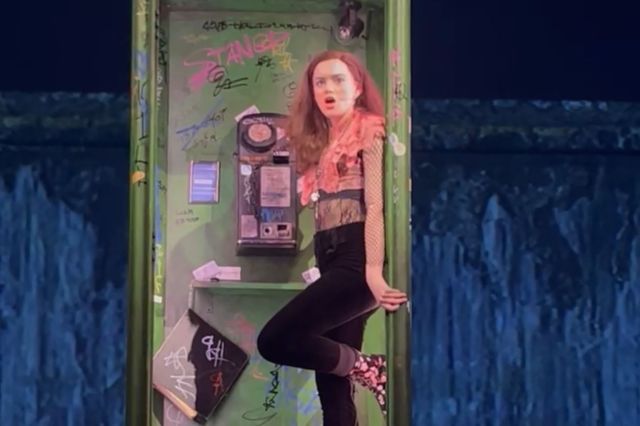Playfight at Summerhall – Edinburgh Fringe Review
The play is presented by the Multi Fringe First-winning team of Julia Grogan, Theatre Uncut and Grace Dickson Productions

Playfight starts as what looks like a fairly conventional coming-of-age drama. Zainab, Lucy and Keira are school friends about to do their GCSEs, but they’re also finding out about sex for the first time, and their chat mostly revolves around their feelings and their confused reactions to them.
The main strength of Julia Grogan’s script is the way she differentiates the characters and gets us inside their dialogue so convincingly. Keira is the one with the most bravado, who has just lost her virginity on the tennis courts. Zainab is coming to terms with the idea that she might like girls, while Lucy struggles to balance her sexual urges with her religious faith and someone from the church who might become her boyfriend.
The dialogue feels completely believable, not least because it’s toe-curlingly awkward at times, and the naive girls have no idea where the line should be drawn. They spill out their innermost emotions, fears and preconceptions with no filter whatsoever, which feels very real, and at times the script is savagely funny, such as when Lucy compares having an orgasm to being chased by a goose.
This is much more than a simple coming-of-age drama, though. From the outset, Grogan takes us into the darker side of growing up, most especially through Keira who discovers that there are sinister sides to being the first to grow up sexually. Lucy’s boyfriend seems to have a dangerous streak to him, and Zainab finds out that telling someone you love them doesn’t always bring about a happy ending.
The play fleshes out the life of the three characters partly by hinting at a world beyond, such as the altogether cosier world of watching TV documentaries with Mum, which reminds us that they’re still girls. Emma Callander directs the three performers with complete credibility, and the set gets a lot out of the simple design of an A-frame ladder representing the tree where they all meet, and which seems to stand for an authority figure in the rootless emotional world in which they find themselves.
As the girls age and we get further from their young selves, however, things become a little less believable. There’s an odd dream-like sequence at a key point in the plot that seems to serve only to pave the way for the gap in time before the final scene. And that finale deals with an altogether darker topic that feels like an uncomfortable tonal shift, for all that it had been cleverly foreshadowed earlier in the script.
The cast is terrific, though. Sophie Cox plays Keira with bold swagger in the opening scenes but reveals her brittleness and vulnerability as she is forced to confront the reality of growing up. Nina Cassells gets all the confusion of Zainab’s character as she confronts not just her sexuality but her growing awareness of the adult world. Best of all is Lucy Mangan, who reveals Lucy as a complex character torn by several contradictions, and full of sympathy as a consequence.
Despite its tonal inconsistency, it’s still a compelling watch and it’s worth seeing for the performances alone.


















